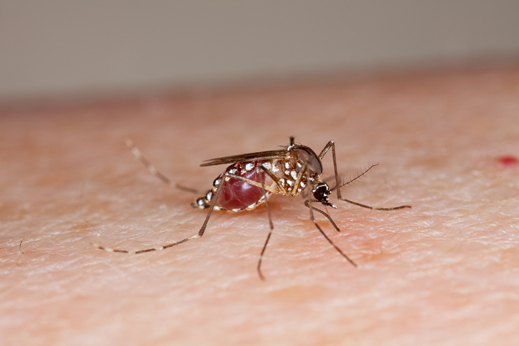Zika Virus Could Stir Demand for GM Mosquitoes
An outbreak in the Western Hemisphere of the Zika virus could give countries including the United States new reasons to try wiping out mosquitoes with genetic engineering.

Yesterday, the Brazilian city of Piracicaba said it would expand the use of genetically modified mosquitoes to fight Aedes aegypti, the species that spreads dengue and chikungunya as well as the Zika virus.
The GM mosquitoes were created by Oxitec, a British company recently purchased by Intrexon, a synthetic-biology company based in Maryland. The company said it has released the bugs in parts of Brazil and the Cayman Islands to battle dengue fever.
But controlling Zika could become a pressing priority. Although the infection causes relatively mild symptoms, it’s suspected of causing more than 3,500 cases of microcephaly, a condition in which children are born with small heads. The U.S. Centers for Disease Control and Prevention issued a warning to pregnant women thinking of traveling to 14 affected countries in Central and South America.
Anthony Fauci, head of the U.S. National Institute for Allergy and Infectious Disease, last week called the Zika outbreak “an explosive pandemic” that he warned could soon jump to the U.S.
There is no vaccine for Zika yet, and although Fauci said the U.S. government has been working on one for the past month, a quick solution isn’t likely. The head of a Brazilian biomedical center, the Butantan Institute, said final development could take several years.
That could generate more interest in new mosquito control tactics like the one being tested in Brazil. The mosquitoes being released have been genetically altered so their offspring die quickly, causing populations to crash, according to Oxitec.
Release of GM bugs in the U.S. is a possibility too, and interest in the idea might accelerate if Zika or unexplained cases of microcephaly spring up in Florida. Oxitec says it has been wanting to try its mosquitoes in Florida but is waiting for the U.S. Food and Drug Administration to finish an environmental impact report.
(source: WSJ, The Telegraph, NEJM)
Keep Reading
Most Popular
Large language models can do jaw-dropping things. But nobody knows exactly why.
And that's a problem. Figuring it out is one of the biggest scientific puzzles of our time and a crucial step towards controlling more powerful future models.
How scientists traced a mysterious covid case back to six toilets
When wastewater surveillance turns into a hunt for a single infected individual, the ethics get tricky.
The problem with plug-in hybrids? Their drivers.
Plug-in hybrids are often sold as a transition to EVs, but new data from Europe shows we’re still underestimating the emissions they produce.
Google DeepMind’s new generative model makes Super Mario–like games from scratch
Genie learns how to control games by watching hours and hours of video. It could help train next-gen robots too.
Stay connected
Get the latest updates from
MIT Technology Review
Discover special offers, top stories, upcoming events, and more.